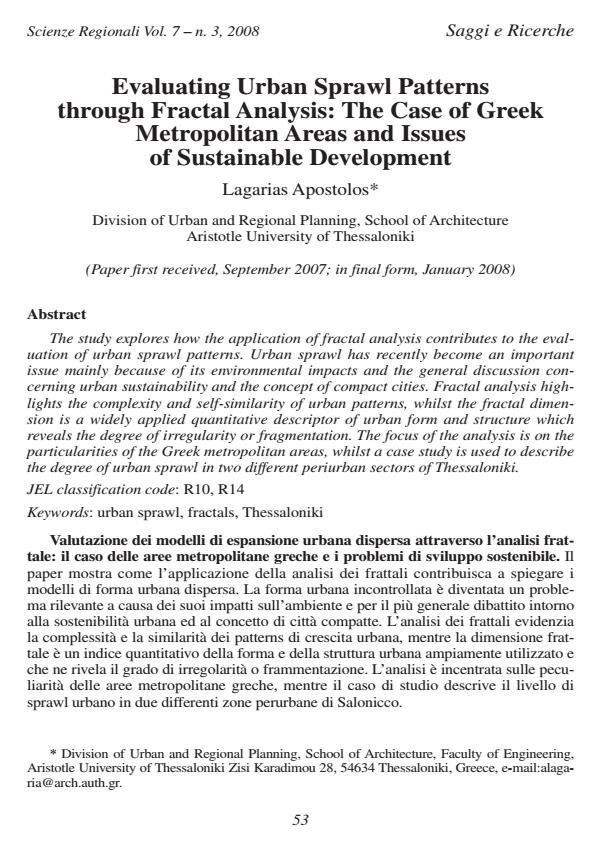Evaluating Urban Sprawl Patterns through Fractal Analysis: The Case of Greek Metropolitan Areas and Issues of Sustainable Development
Journal title SCIENZE REGIONALI
Author/s Lagarias Apostolos
Publishing Year 2008 Issue 2008/3
Language English Pages 25 P. 53-77 File size 513 KB
DOI
DOI is like a bar code for intellectual property: to have more infomation
click here
Below, you can see the article first page
If you want to buy this article in PDF format, you can do it, following the instructions to buy download credits

FrancoAngeli is member of Publishers International Linking Association, Inc (PILA), a not-for-profit association which run the CrossRef service enabling links to and from online scholarly content.
The study explores how the application of fractal analysis contributes to the evaluation of urban sprawl patterns. Urban sprawl has recently become an important issue mainly because of its environmental impacts and the general discussion concerning urban sustainability and the concept of compact cities. Fractal analysis highlights the complexity and self-similarity of urban patterns, whilst the fractal dimension is a widely applied quantitative descriptor of urban form and structure which reveals the degree of irregularity or fragmentation. The focus of the analysis is on the particularities of the Greek metropolitan areas, whilst a case study is used to describe the degree of urban sprawl in two different periurban sectors of Thessaloniki.JEL classification code: R10, R14. Keywords: urban sprawl, fractals, Thessaloniki
Lagarias Apostolos, Evaluating Urban Sprawl Patterns through Fractal Analysis: The Case of Greek Metropolitan Areas and Issues of Sustainable Development in "SCIENZE REGIONALI " 3/2008, pp 53-77, DOI: